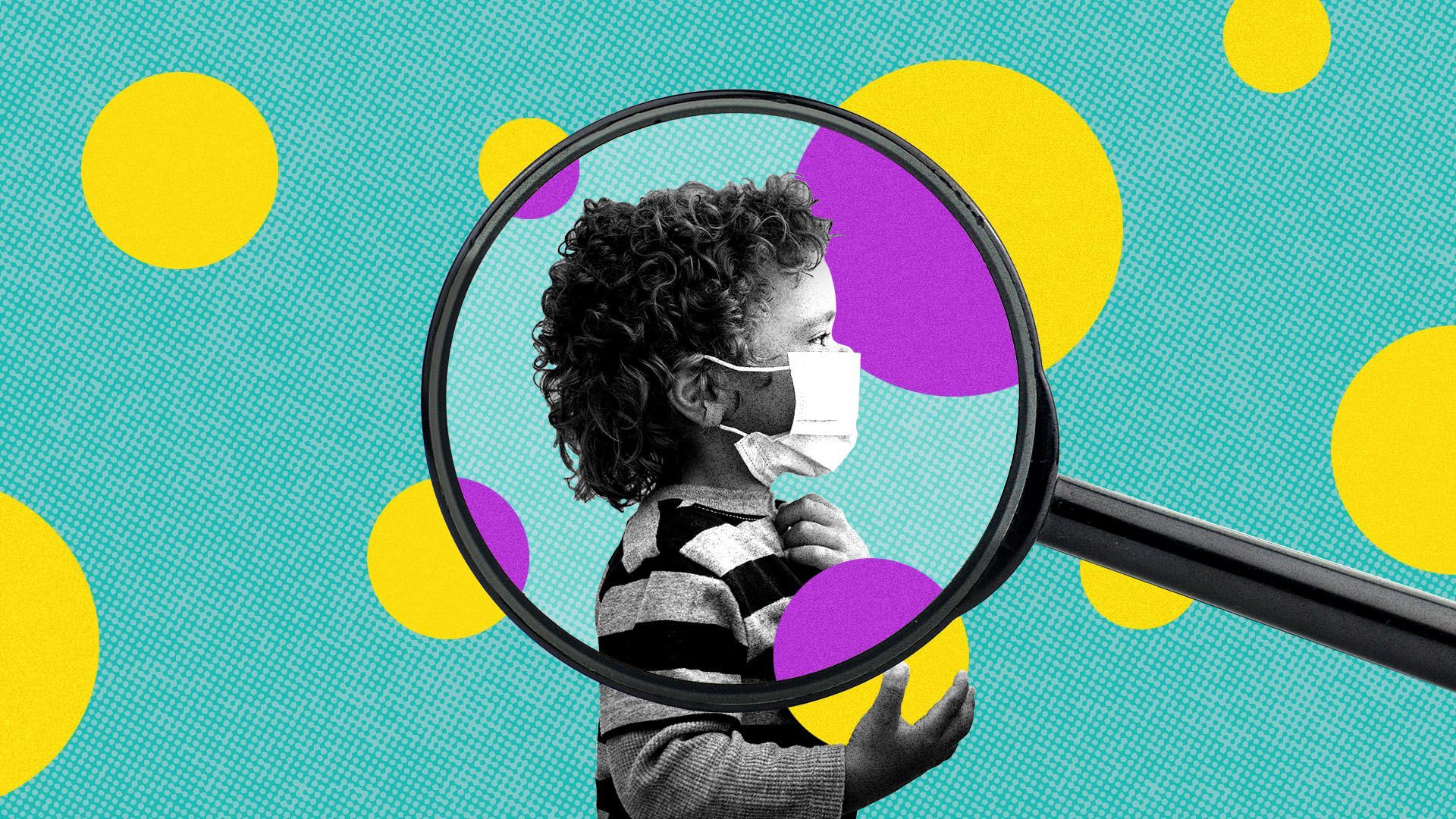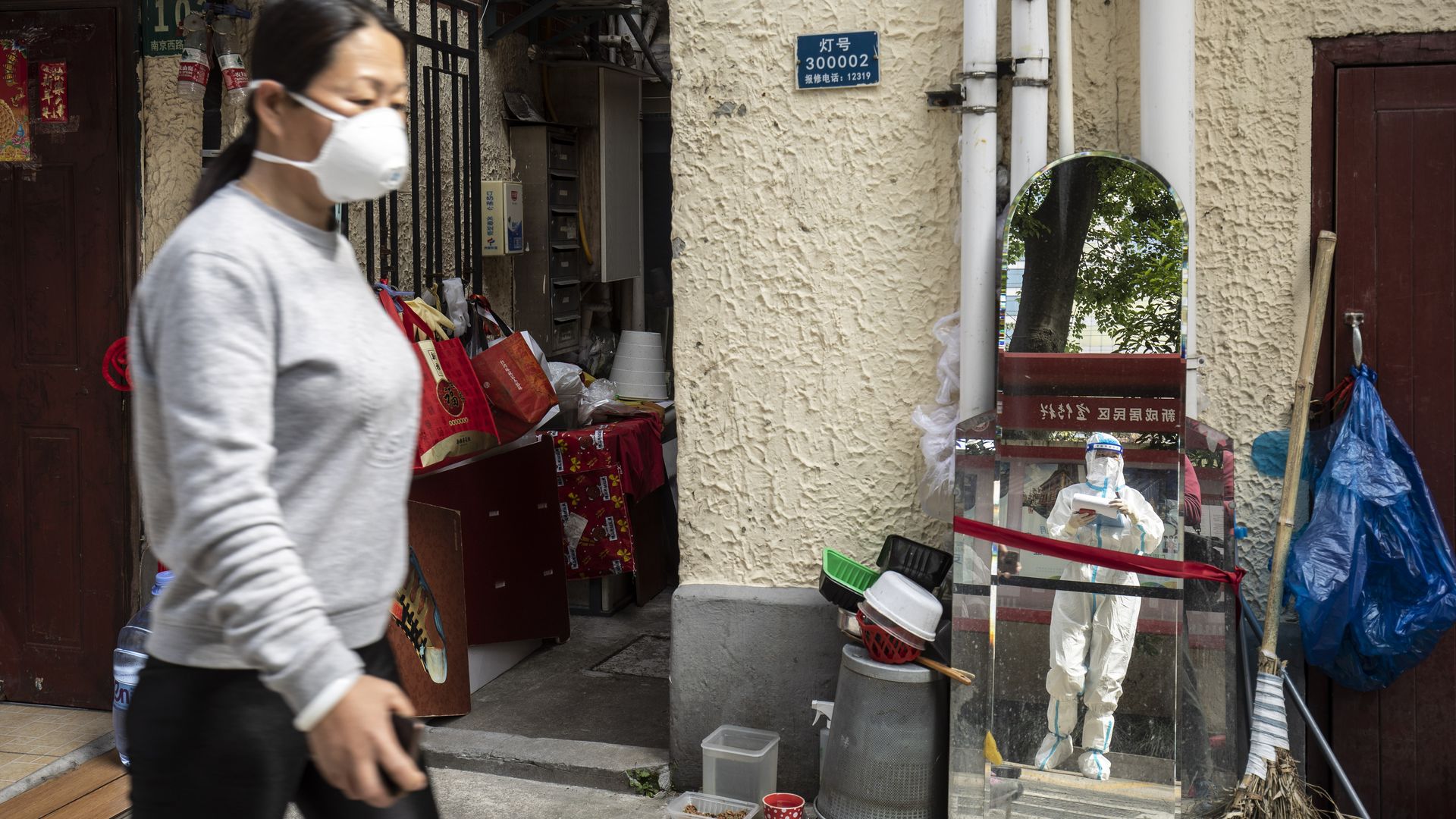| | | | | | | | | | | Axios Vitals | | By Tina Reed · Apr 18, 2022 | | Happy Monday, Vitals readers. Today's newsletter is 913 words or a 3-minute read. 🌎 On tap today: The World Vaccine Congress starts in D.C. 📺 Tune in: Join Axios' Kristal Dixon and Russell Contreras tomorrow at 12:30pm ET for a virtual event examining how social determinants impact health outcomes, both in Atlanta and across the nation. Register here. | | | | | | 1 big thing: Pandemic's end could surge the number of uninsured kids |  | | | Illustration: Aïda Amer/Axios | | | | The formal end of the pandemic could swell the ranks of uninsured children by 6 million or more as temporary reforms to Medicaid are lifted, Axios' Adriel Bettelheim reports. Why it matters: Gaps in coverage could limit access to needed care and widen health disparities, by hitting lower-income families and children of color the hardest, experts say. The big picture: A requirement that states keep Medicaid beneficiaries enrolled during the public health emergency in order to get more federal funding is credited with preventing a spike in uninsured adults and kids during the crisis. - Children are the biggest eligibility group in Medicaid, especially in the 12 states that haven't expanded their Medicaid programs under the Affordable Care Act.
- The lifting of the public health emergency, which was just extended to July 15, will lead states to determine whether their Medicaid enrollees are still eligible for coverage — a complicated process that could result in millions of Americans being removed from the program.
What they're saying: The end of the continuous coverage guarantee puts as many as 6.7 million children at very high risk of losing coverage, per Georgetown University's Center for Children and Families. - That would more than double the number of uninsured kids, which stood at 4.4 million in 2019.
- "It is a stark, though we believe conservative, estimate," said Joan Alker, the center's executive director. "There are a lot of children on Medicaid."
Go deeper. |     | | | | | | 2. Many docs have misconceptions about e-cigs | | More than 60% of all doctors incorrectly believed all tobacco products are equally harmful, making them less likely to recommend e-cigarettes for people trying to quit smoking, according to a study published in JAMA Network Open. Why it matters: While the FDA has not approved e-cigarettes as a smoking cessation device, there is growing evidence they may help lure smokers to a less harmful option, the study authors note. - In the study, led by Rutgers University, researchers asked more than 2,000 doctors in the U.S. in 2018 and 2019 about how they would advise patients on e-cigarettes. One in four physicians discouraged all use of e-cigarettes and were more likely to advise against them if the hypothetical smoker they were counseling were a younger, light smoker compared to an older, heavier smoker.
- Only 22% recommended the products.
- "These findings show it is critical to address physicians' misperceptions and educate them on e-cigarettes' efficacy, particularly correcting their misperceptions that all tobacco products are equally harmful, as opposed to the fact that combusted tobacco is by far the most dangerous," said lead author Cristine Delnevo, director of the Rutgers Center for Tobacco Studies in a statement.
Related: FDA increasing oversight of synthetic nicotine products |     | | | | | | 3. The trouble with kids' supplements |  | | | Illustration: Sarah Grillo/Axios | | | | More than half of parents regularly give their kids a nutritional supplement out of concern their child isn't getting a well-balanced diet, according to the University of Michigan Health C.S. Mott Children's National Poll on Children's Health released today. Why it matters: The poll also found they aren't always consulting with a health provider before turning to supplements. The details: The poll of a nationally representative sample of more than 1,200 parents with at least one child aged 1 through 10, found about a third said their child is a picky eater and a third said they don't think they get enough fruits and vegetables. - Of those parents who have given their child supplements, about 80% say they chose products made specifically for kids.
- But only about 40% said they discussed the use with their kids' health provider.
What they're saying: "There is limited research on the safety and efficacy of supplements and potential side effects for kids. But some parents may not be aware that supplements do not undergo rigorous FDA testing and approval," said Mott Poll co-director Sarah Clark in a statement. - To minimize the risks of supplement use, parents should talk to their pediatrician, she said.
|     | | | | | | A message from Axios | | Your daily research, done in 5 minutes | | |  | | | | Axios Pro: Health Tech Deals delivers exclusive reporting and analysis on everything transforming health tech, every single day. Why it matters: We're here to help you save time, know more and understand better. Use code PRO200 at checkout to get $200 off your subscription. | | | | | | 4. Shanghai reports first new official COVID deaths |  | | | A worker in PPE reflected in a mirror keeps watch during a lockdown in Shanghai, China, on Monday. Photo: Qilai Shen/Bloomberg via Getty Images | | | | Shanghai reported three people have died from COVID, its first official report of COVID deaths since the start of its weeks-long lockdown, the Associated Press reported. What they're saying: Officials said the deaths were among elderly, unvaccinated individuals with pre-existing conditions. However, deaths in hospitals and nursing homes in the region could be underreported, Newsweek wrote over the weekend. Between the lines: In a society that generally respects authority, Chinese citizens are rebelling against COVID lockdowns that have brought food shortages, family separations and lost wages, Reuters reports. - Videos on social media show citizens scuffling with health workers and screaming in anger from their apartment windows.
- Arrests and detentions for COVID-related rule-breaking surged in March, according to a search on the Weibo social media platform for police statements, posts by state agencies and state media reports.
- Most infractions involve citizens trying to skirt rules, such as reporting travel on a health app, falsifying COVID test results and sneaking out of locked-down neighborhoods.
Assaults on health workers also surged. |     | | | | | | 5. While you were weekending |  | | | Illustration: Aïda Amer/Axios | | | - Ashish Jha, the White House's COVID-19 response coordinator, said on Sunday that he does not think a "zero-COVID" strategy, similar to the one adopted in China, is likely to work. (Axios)
- Four Michiganders were infected with a COVID-19 strain unique to mink, which likely makes them the first animal-to-human spillover cases in the U.S. (Detroit Free Press)
- A STAT investigation found the FDA's breakthrough device program, meant to benefit patients, is delivering the biggest gains for companies. They also created a database of hundreds of devices that have earned the designation. (STAT)
- Is COVID more dangerous than driving? How scientists are parsing the risks. (New York Times)
|     | | | | | | A message from Axios | | Your daily research, done in 5 minutes | | |  | | | | Axios Pro: Health Tech Deals delivers exclusive reporting and analysis on everything transforming health tech, every single day. Why it matters: We're here to help you save time, know more and understand better. Use code PRO200 at checkout to get $200 off your subscription. | | |  | It's called Smart Brevity®. Over 200 orgs use it — in a tool called Axios HQ — to drive productivity with clearer workplace communications. | | | | | | Axios thanks our partners for supporting our newsletters. If you're interested in advertising, learn more here.
Sponsorship has no influence on editorial content. Axios, 3100 Clarendon Blvd, Suite 1300, Arlington VA 22201 | | | You received this email because you signed up for newsletters from Axios.
Change your preferences or unsubscribe here. | | | Was this email forwarded to you?
Sign up now to get Axios in your inbox. | | | | Follow Axios on social media:    | | | | | |








No comments:
Post a Comment